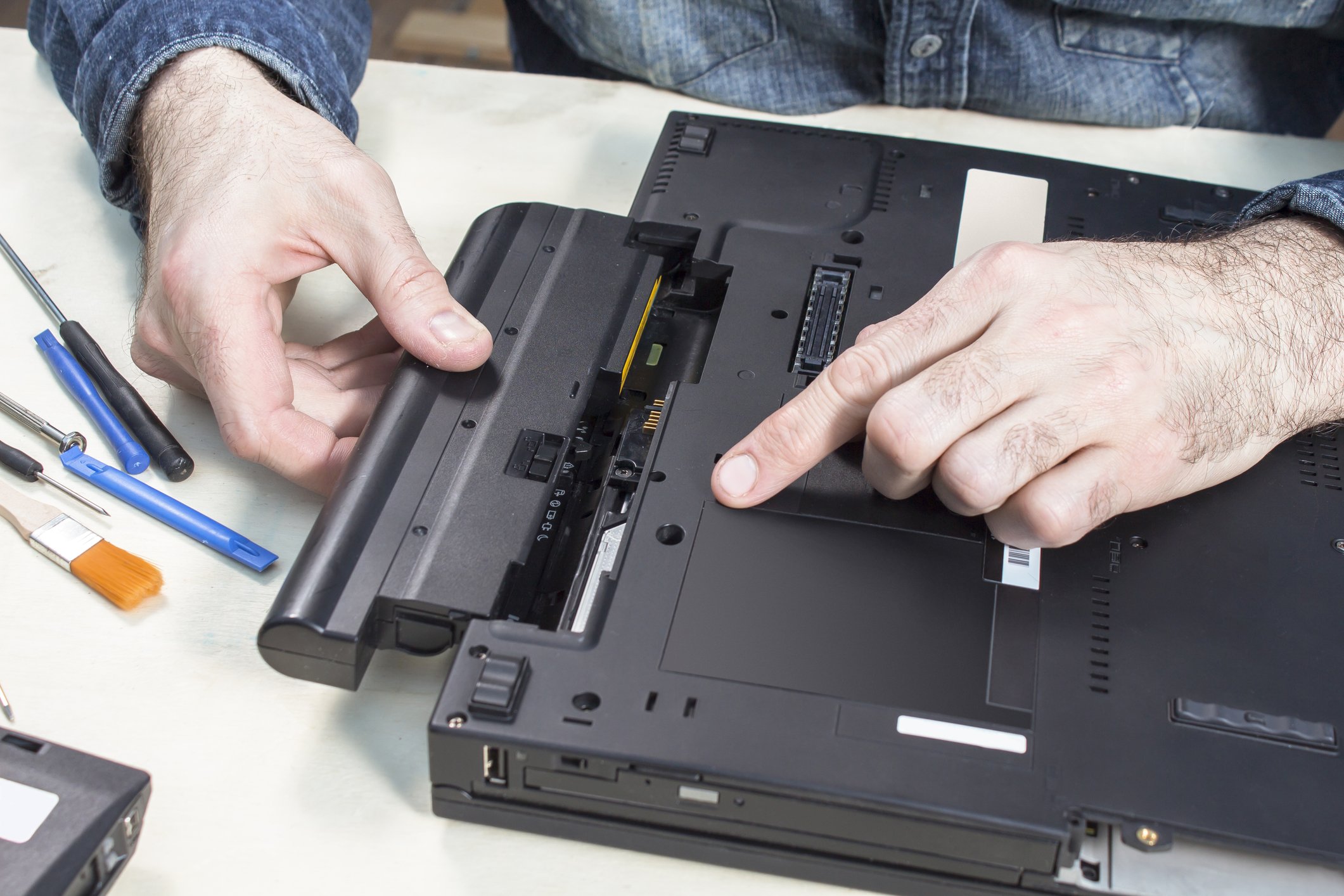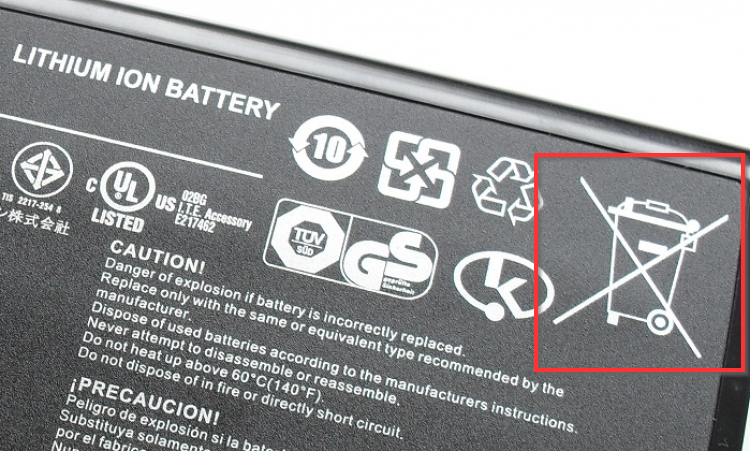A new laptop battery will provide around 500 charge cycles during its lifetime. A charge cycle is a single instance of a fully charged battery being drained to 0%, then back to full. Draining to 50% then back to full would count as half of a charge cycle.
Poor battery usage and other factors can cause the battery's life to sink below 500 charge cycles. On the other hand, proper care and use will yield over 500 cycles. The tips below will help you maximize a laptop battery's lifespan and get the longest battery life you can.

Do Lithium-ion Laptop Batteries Have a “Battery Memory”?
Before our modern lithium-ion batteries powered most of our mobile devices, nickel-cadmium and nickel-metal hydride batteries were used and faced an issue called 'battery memory.' Battery memory issues occur by repeated discharge to a non-minimum level, which caused the batteries to "forget" their full charge capacity. We recommend that users routinely allow their batteries to fully discharge and recharge them to combat this.
Lithium-ion batteries do not require this maintenance as the chemistry does not yield a 'battery memory' issue. This practice is hard on lithium-ion batteries and should be avoided.
Can a Lithium-ion Battery be Overcharged?
Another holdover from previous times is that charging a battery to 100% and leaving it plugged-in is destructive. If a lithium-ion battery is over-charged, it will fail in a big way (material fail, carbon dioxide pressure build-up, thermal runaway, ignition). This is why all lithium-ion batteries are equipped with special integrated circuits that prevent over-charge. Once capacity is reached, the circuit prevents any further charge from being applied to the battery cells. Thus, leaving a device plugged-in at 100% will not harm a lithium-ion battery.
Battery Care and Laptop Usage
Below are our top three tips to ensure that your battery stays as healthy as possible, for as long as possible:
1. Avoid Completely Draining the Battery
As mentioned earlier, discharging a lithium-ion battery to full depletion is hard on it. Doing so repeatedly will undoubtedly yield a shorter battery life. It would be best if you did not let your battery fall below 20% capacity. Charge to full before then and repeat.
2. Avoid Excessive Heat Build up
Lithium-ion batteries do not like heat. Heat causes the battery to work overtime, but there is nowhere to put that extra energy, causing more heat. High temperatures are hard on batteries and will reduce their lifetime.
Always make sure your laptop has proper ventilation. Operating one on a blanket, pillow, or lap can cause the material to block the heatsink intakes and vents, causing not just your battery but your entire laptop to heat up. Additionally, take care to keep your computer and its battery out of hot environments. Being in direct sunlight, hot cars, or near heating can cause significant degradation rapidly.
3. Charge to 50% for Long Term Storage
If you must store a lithium-ion battery such that it will be out of use for a week or longer, it is best to do so at 50% charge capacity. The worst way to store a battery is while fully depleted. The battery may fail if fully depleted for a long enough period.
Batteries will slowly deplete in storage, so every so often, you should check its charge level and return it to 50% for further storage. Maintaining 30-50% capacity during storage is best for your battery.
When to replace and disposal
Our article on laptop batteries has details about replacing your laptop battery if it is not charging or other battery-related issues. If you replace your laptop battery, it is advisable to dispose of the old one appropriately.

Micro Center offers free battery recycling. Drop any old battery off at the service department and the team will forward it to certified recyclers.